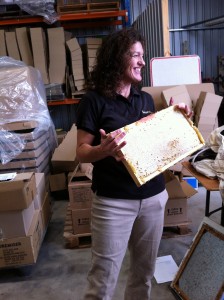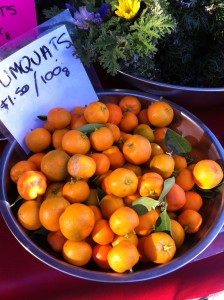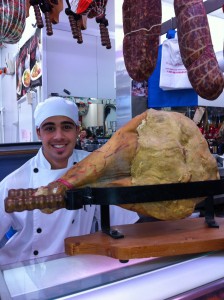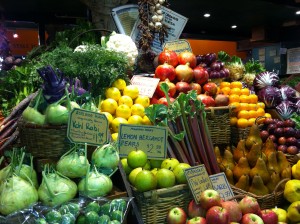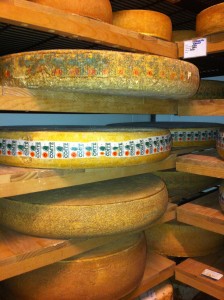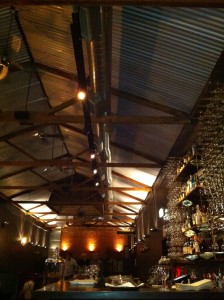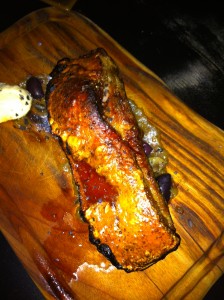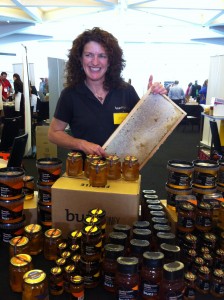
Jude Crowe from Buzz Honey explains how three of every five mouthfuls of food consumed in this world are dependent on the work of a bee to transport pollen from one plant to another. It sounds simple, but understanding the importance of keeping the bee industry healthy and thriving is anything but. The Crowes, that’s Jude and Tim, started beekeeping in 1999, keeping bees in native plantations to ensure the bees have opportunity to visit areas with botanical diversity. The bees are attracted not just by the smell and taste of nectar, but also by how the flower is positioned on a plant. In Jude’s estimation you need around 400 hives to make a living. The Crowes keep 1000. With around 50,000 to 80,000 bees in each hive, that’s a lot of winged neighbours they don’t want to upset!
Recently, on the front page of New Zealand’s most widely read newspaper, the NZ Herald, there was a report saying that honey was one of the foods that should be cut down or cut out of a modern diet (to slow obesity). What utter nonsense. Honey is an ancient food, and our bodies have been accustomed to eating it for thousands of years. It is digested in the large intestine and does not give a sugar rush. The thing to cut down or cut out is processed white sugar.
Then there is the question of heating honey. As heating honey destroys much of its healthful properties, what about the ‘flu, sore-throat cure-all, a hot lemon and honey drink, a mix of freshly squeezed lemon juice and honey (and in NZ we are lucky to have manuka honey made from the native manuka shrub, which possesses antibacterial and antifungal properties), to which boiling water is added to make a soothing drink. Is the goodness from the honey, the very ‘medicine’ this drink is renowned for, destroyed by the heat? Apparently not. Honey can withstand high temperatures for a short period without apparent loss of nutrients.
Jude Crowe
Our very life depends on bees (check out the dvd Queen of the Sun). In 2006 50% of the USA’s commercially managed bee colonies died, a syndrome coined Colony Collapse Disorder. Bees are the legs of plants. They transfer pollen to the female part of the flower. Plants need bees to move their genes and bees are willing collaborators. www.honeybee.org.au/pdf/PollinationAwareFactsSheet.pdf
What can you do to help? The Crowe’s hives need around 300 litres of water a day. If you have a swimming pool or source of fresh water where bees come and drink, consider floating a few corks on top of the water so bees can perch while drinking, instead of risking drowning. Consider having a hive in your back garden, on your roof, at your beach house, on top of your office building. There are companies in New Zealand who look after the bees for you. You just provide a unique spot for the bees with your local. The honey is not yours, but the beekeeper kindly gives you half the honey harvested. The proverbial win-win arrangement (bees, beekeeper, you, the plant).
buzzhoney@bigpond.com

